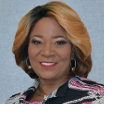 The Crux of Core Strengths Accountability
The Crux of Core Strengths Accountability
Linda Callecod, Senior Consultant, Professional & Organizational Development
The title of the Core Strengths Accountability workshop is deceiving. At first, I assumed it would be similar to Marcus Buckingham’s StrengthsFinder Profile, through which you’re encouraged to identify and then capitalize upon your strengths. Although Core Strengths does use an assessment, I discovered it is not like Buckingham’s work at all. Then I thought it must be like the Myers-Briggs Type Indicator (MBTI), which is designed to help individuals better understand their preferences and how differently they and others perceive the world and approach decision-making. But, no, Core Strengths is not like that either. Finally, I wondered if there was any relation to Pilates or other exercise programs that encourage us to develop a strong core. Thankfully, I can assure you that Core Strengths is not that!
What Core Strengths is actually about is transforming from a culture of compliance to a culture of accountability, in which individuals choose to take both ownership and initiative. Although the other things mentioned above are worthwhile in their own right, Core Strengths is unique and is, I believe, of immense value to leaders.
The program uses the internationally recognized Strengths Deployment Inventory as a basis and strives to teach leaders how to develop the skill of accountability in ourselves and others. Although some of us tend to think of “accountability” as a trait, value, or practice, it is indeed a skill in that it is something we can learn to do better; it can be developed, mastered, modeled, and even taught. According to the Core Strengths framework, true accountability can’t be demanded or imposed. However, we can create an environment in which people are empowered to choose the strengths that are best for them and, in turn, intrinsic motivation and accountability will flourish.
Inevitably, when we are steadfast in holding ourselves accountable and asking for accountability from others—rather than simply going with the flow or looking the other way—conflict arises. For that reason, the Core Strengths workshop explores how we handle ourselves and interact with others when in conflict. It is fascinating when we discover, for instance, that some people who are typically quite flexible become intractable in conflict, while others who tend to be set in their ways may be more receptive than anticipated. Still others seem to change their tactics or interactions so little that we may not even realize when they are struggling or feel embattled.
Since launching Core Strengths Accountability as part of Level 2 of the Strategic Leadership Program in Winter 2016, POD has had more than 200 leaders attend as part of our regular course offerings. In addition, we have provided Core Strengths as a custom training to numerous intact teams.
What we hope for our participants—and, in fact, what we have seen many times over—is a true paradigm shift, a completely new view of not just how to inspire and model accountability but an understanding of what true accountability is and where it comes from.
I certainly have learned a great deal more about myself and others while facilitating this workshop, and I relish the many “eureka” moments that our participants experience. I hope you will consider joining us for the next offering of Core Strengths Accountability this summer.


